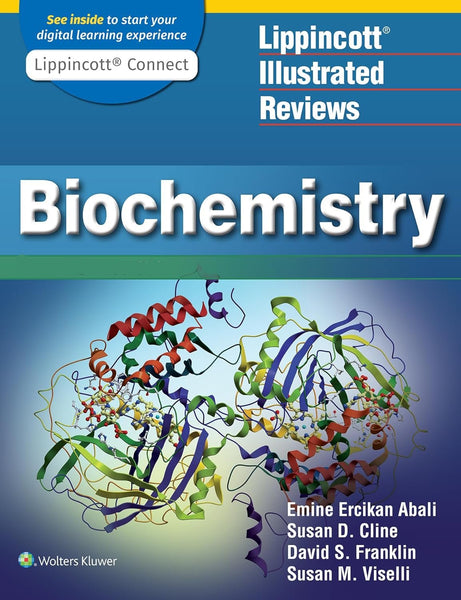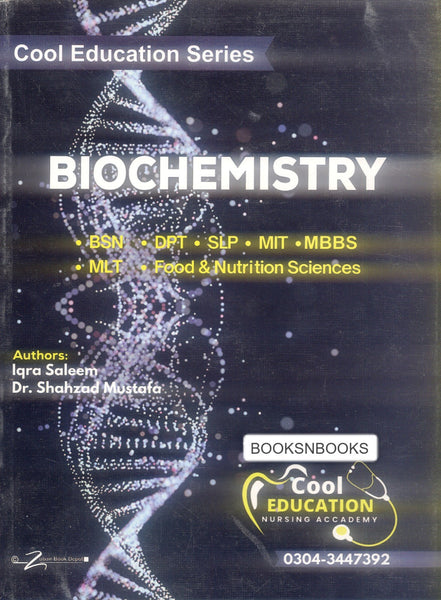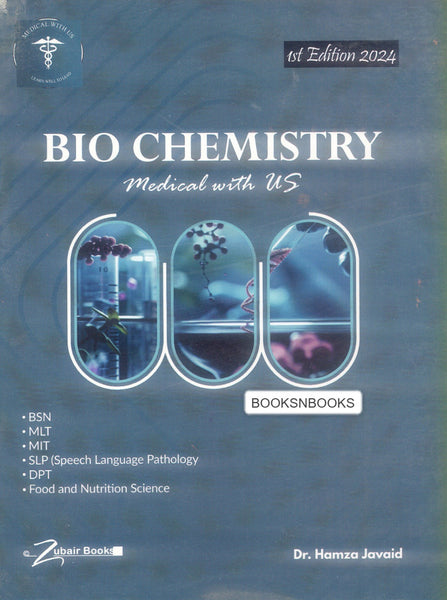Biochemistry: A Short Course, 2nd Edition by John L. Tymoczko
- Publisher: BIOCHEMISTRY BOOKS
- Availability: In Stock
- SKU: 55119
- Number of Pages: 862
Rs.1,540.00
Rs.2,195.00
Tags: A Short Course , Berg , Best , best books , best books online , best chemistry books , best online store , Best Price , Best Selling Books , biochemical applications , biochemical processes , Biochemistry , biochemistry books , biochemistry books online , biochemistry short course , biochemistry textbook , Biochemistry: A Short Course , biological books , biological books online , Biological Sciences , Biology , Biology & Life Sciences , BIOLOGY BOOKS , biology books online , book good , BUY ONLINE , cellular communication , chemistry , chemistry books , chemistry books online , clinical biochemistry , DNA replication , enzyme kinetics , glycolysis , good book , good books online , good quality , good read , introductory biochemistry , latest books online , metabolic regulation , online , ONLINE BOOKS , online bookstore , onlinebooks , oxidative phosphorylation , real-world biochemistry , really good , Science & Math , signal transduction , Stryer , transcription , Tymoczko
"Biochemistry: A Short Course" (2nd Edition) is a concise yet comprehensive textbook designed to provide students with a solid foundation in biochemistry. Written by renowned authors John L. Tymoczko, Jeremy M. Berg, and Lubert Stryer, the book covers essential biochemical principles while focusing on the real-world relevance of the subject. This edition simplifies complex topics without compromising on scientific rigor, making it ideal for students in introductory biochemistry courses or those seeking a thorough review.
Key Points:
-
Concise Presentation of Core Concepts:
- The book distills biochemistry into its most essential concepts, covering fundamental topics in a clear, focused manner suitable for both undergraduate and graduate students.
-
Molecular Structure and Function:
- Provides a detailed exploration of the structure and function of biomolecules, including proteins, lipids, carbohydrates, and nucleic acids, essential for understanding their role in biochemical processes.
-
Metabolism and Energy:
- Discusses metabolic pathways such as glycolysis, the citric acid cycle, and oxidative phosphorylation, emphasizing energy production and utilization in biological systems.
-
Genetic Information Flow:
- Covers the central dogma of molecular biology—DNA replication, transcription, and translation—highlighting the mechanisms of gene expression and regulation.
-
Enzyme Function and Kinetics:
- Offers a comprehensive look at enzyme activity, kinetics, and regulation, helping students understand how biochemical reactions are catalyzed and controlled.
-
Signal Transduction:
- Explains how cells communicate and respond to signals through detailed discussions on signal transduction pathways and their role in cellular functions.
-
Clinical and Real-World Applications:
- Features numerous clinical case studies and real-world examples that demonstrate how biochemistry is applied in medicine, agriculture, and biotechnology.
-
Visual Learning Tools:
- Includes high-quality illustrations, diagrams, and molecular models that facilitate the visual learning of complex biochemical processes.
-
End-of-Chapter Problems:
- Each chapter ends with a set of review questions and problems, encouraging students to apply what they’ve learned and prepare for exams.
-
Supplementary Online Resources:
- Access to additional online materials, including interactive tutorials, animations, and self-assessment tools, enhances learning and provides further clarification of difficult topics.
Conclusion:
"Biochemistry: A Short Course" (2nd Edition) by John L. Tymoczko, Jeremy M. Berg, and Lubert Stryer is an ideal resource for students seeking a clear, concise, and accessible guide to biochemistry. It strikes the right balance between depth and simplicity, making complex biochemical processes understandable while maintaining scientific accuracy. The book’s engaging writing style, real-world examples, and visual aids make it a valuable learning tool for anyone studying biochemistry
════ ⋆★⋆ ═══
Writer ✤ John L. Tymoczko (Author), Jeremy M. Berg (Author),
Lubert Stryer (Author)

























